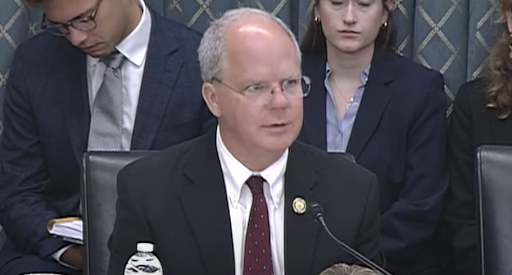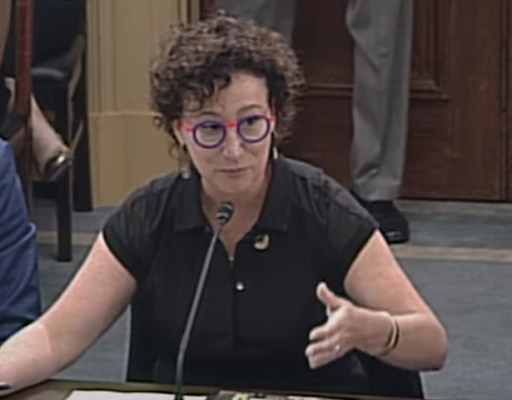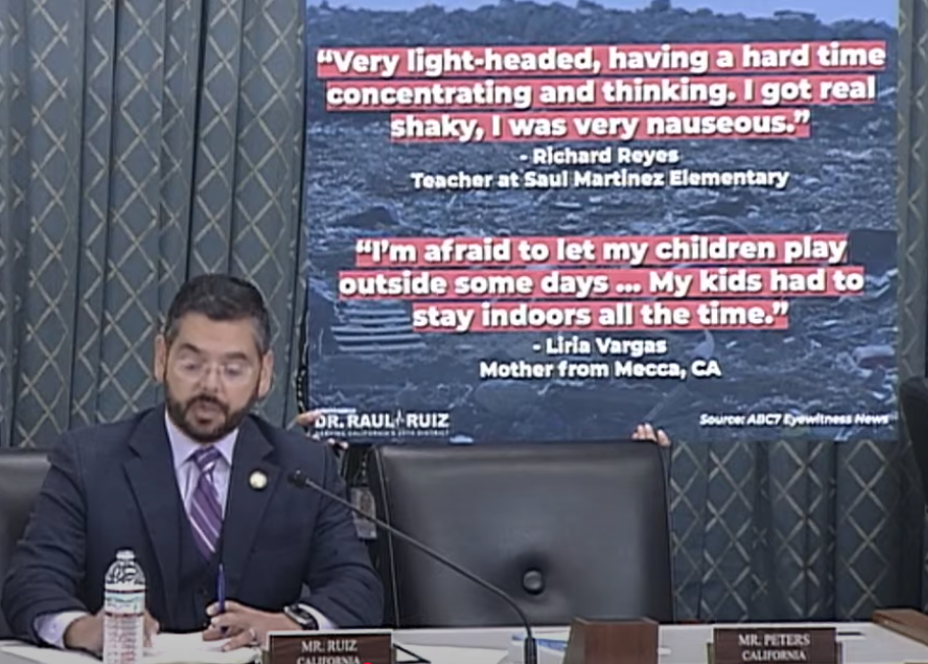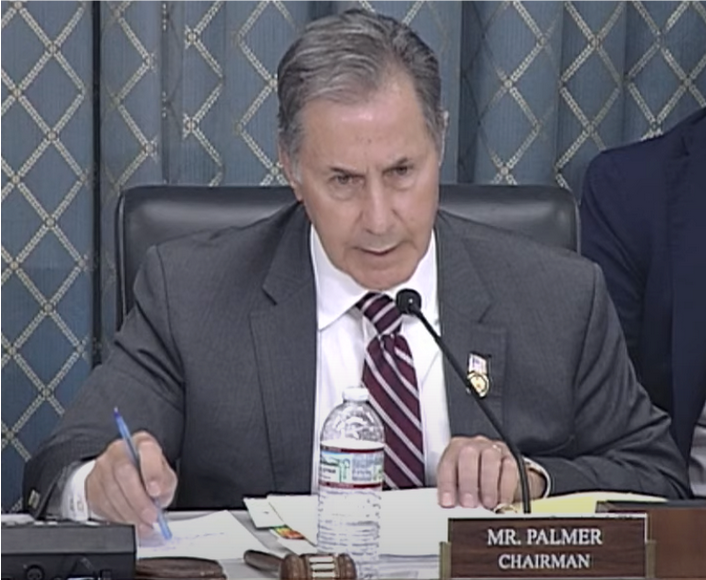Momentum Builds for Recycling Changes: EPR, DRS, ACM, and Resource Security
Wednesday’s hearing before the U.S. House Energy & Commerce Subcommittee on Environment offered a rare sight: lawmakers from both sides of the aisle acknowledged that America’s recycling system is broken and needs changes.
The hearing, titled “Beyond the Blue Bin: Forging a Federal Landscape for Recycling Innovation and Economic Growth,” spotlighted some bipartisan consensus: the U.S. needs a stronger, smarter, and more harmonized recycling framework that advances domestic manufacturing, critical mineral security, economic development, and environmental performance.
From Chair Brett Guthrie (R-KY) to Ranking Member Paul Tonko (D-NY) and full-committee Ranking Member Frank Pallone (D-NJ), members repeatedly emphasized that investing in a modern recycling system is not just an environmental imperative—it’s an industrial and economic one.
“This is about reshoring manufacturing, safeguarding supply chains, and keeping taxpayer dollars from disappearing into landfills,” said Rep. Guthrie, framing the discussion through a lens of economic necessity.

Three Paths Forward: EPR, Advanced Recycling, and Deposit Return
The hearing explored a trio of major policy solutions—Extended Producer Responsibility (EPR), Advanced/Chemical Recycling, and Deposit Return Systems (DRS)—each drawing interest and pointed questions from lawmakers.
EPR, which shifts responsibility for funding and managing recycling away from taxpayers and onto producers, found strong support across the witness panel. Keefe Harrison of The Recycling Partnership argued that EPR could close the $17 billion/year funding gap in the U.S. residential recycling system, improve access for the 27% of Americans without curbside service, and return $8.8 billion worth of lost packaging to the economy.
“EPR aligns packaging design with end-of-life solutions,” said Harrison. “It’s about systems thinking. We need a national framework, not 50 experiments.”

Dan Felton of the Flexible Packaging Association agreed, noting that a well-crafted federal EPR law could harmonize the patchwork of seven state laws (CA, CO, ME, MD, MN, OR, & WA) and support flexible films currently left out of traditional curbside systems.
Advanced recycling (also called chemical recycling or molecular recycling) split lawmakers along different lines. Ross Eisenberg, President of America’s Plastic Makers at the American Chemistry Council, urged Congress to define advanced recycling as manufacturing, not waste disposal—a move that 25 states have already taken. This, he argued, would unlock billions in private investment and support the 5 million jobs and $22 billion trade surplus driven by the U.S. plastics industry.
Lawmakers like Rep. Raul Ruiz (D-CA) and Rep. Nanette Barragán (D-CA) pressed hard on the health, emissions, and environmental justice implications, particularly for communities already overburdened by industrial pollution.

DRS (Deposit Return Systems) weren’t the headline topic, but several lawmakers, including Rep. Dina Titus (D-NV) and Rep. Mariannette Miller-Meeks (R-IA), raised concerns about rural access gaps and contamination—issues DRS programs could help solve. The STEWARD Act, which merges two bipartisan bills (RIAA & RCAA), would pilot collection upgrades in rural areas and fund a national data-mapping effort that could underpin future DRS programs.
Big Questions from Lawmakers
Throughout the hearing, lawmakers voiced sharp, often overlapping questions that revealed just how serious the committee is about getting the policy right. Here are some key concerns they raised:
- Rep. Mike Waltz (R-FL): Will federal uncertainty around recycling definitions chill private-sector investment?
- Rep. Doris Matsui (D-CA): How can EPR better internalize full life-cycle costs of packaging?
- Rep. Jan Schakowsky (D-IL): What role should EPA play in tackling Great Lakes plastic pollution?
- Rep. Earl Carter (R-GA): How do we ensure advanced recycling creates jobs without excessive permitting burdens?
- Rep. Morgan Griffith (R-VA): What does the science say about microplastics? Are we ready to regulate?
Even as some debates revealed ideological rifts—particularly around emissions regulation and UN treaty engagement—most legislators signaled that they are ready to utilize pilot projects and Congress’s power for national coordination.
Needs from Congress: Clarity, Capital, and Coordination
From the witness table, the message was clear: the private sector is ready to invest, but needs policy certainty, permitting clarity, and consistent definitions to act.
Here are six top needs flagged during the hearing by legislators and witnesses:
- Pass the STEWARD Act to support rural access and build a national recycling-data backbone.
- Introduce and advance the CIRCLE Act, offering a 30% tax credit for recycling infrastructure investments.
- Develop a federal EPR framework drawing on state models and existing industry consensus.
- Update the FTC Green Guides and adopt a national recyclability labelling law (PAC Act) to eliminate consumer confusion.
- Expand DOE/EPA funding for critical mineral recovery, including low-emission hydrometallurgy plants like those proposed by Matt Bedingfield of Mint Innovation.

“U.S. e-waste contains $10.6 billion in recoverable metals—and we landfill or export most of it,” said Bedingfield. “We can build a facility in 12 months, recover lithium, cobalt, copper, and gold, and create over 150 jobs per site.”
The Road Ahead
There are few areas in Washington where both parties find common cause. But speakers and witnesses from a variety of perspectives agreed that improving America’s recycling infrastructure—with stronger federal rules, smarter producer accountability, and better support for domestic innovation—is one of them.
The message from Capitol Hill is clear: the U.S. must lead at home.
“This is the first time I’ve seen such a bipartisan appetite for real, scalable recycling solutions,” said one longtime observer in the room. “Now Congress just needs to act.”
Join the conversation. CIRCLE will continue to bring together the writers and implementers of US circular policy from across the country. CIRCLE Plenaries are invite-only for OPLN members, category experts, and U.S. state legislators. To learn more about CIRCLE, please fill out our interest form.